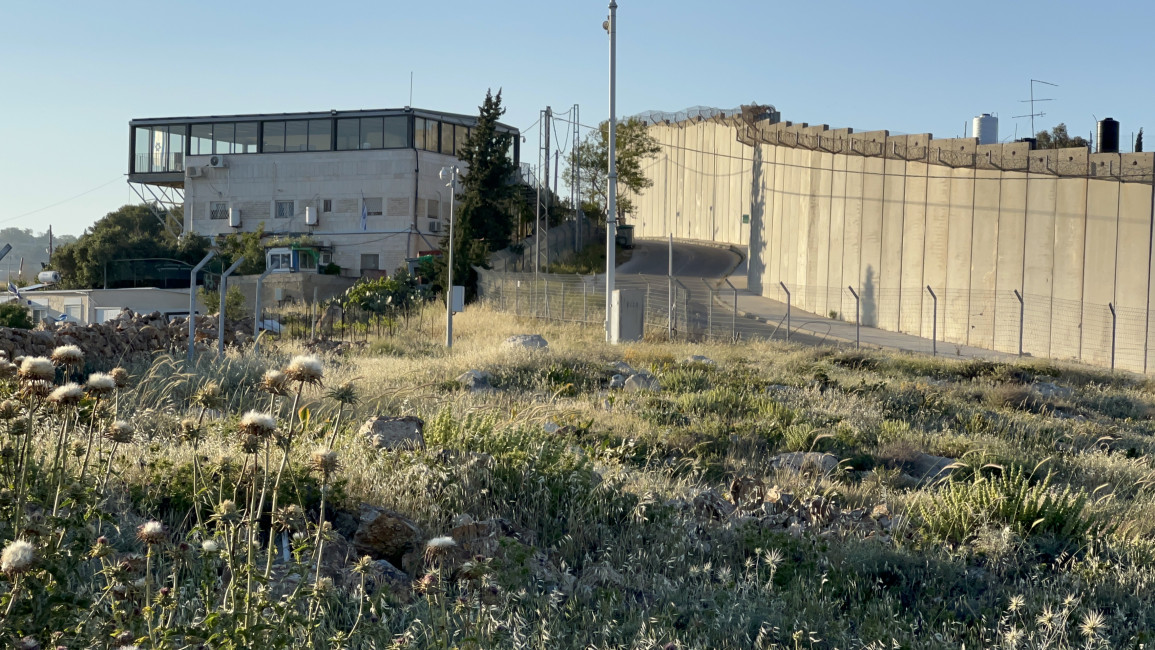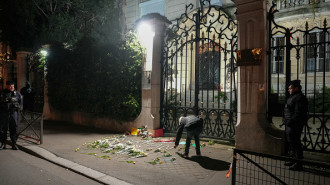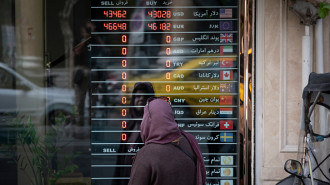Jewish settler group submits plans for new settlement in occupied East Jerusalem
Israeli settler groups, aided by the Israeli authorities, submitted a plan for a new settlement comprised of 384 housing units in occupied East Jerusalem.
Ateret Cohanim, a notorious right-wing Jewish nationalist group aiming to create a Jewish majority in East Jerusalem, is leading the effort to promote the "Kidmat Zion" settlement.
The literal translation of "Kidmat Zion" is East Jerusalem, but in Hebrew, it has a strong "feeling of something ancient and glorious," Aviv Tartasky of Ir Amim explained to The New Arab.
The pro-settler group Ateret Cohanim is also behind the mass eviction lawsuits brought against Palestinians in Batan al-Hawa in Silwan as well as attempts to seize important properties traditionally owned by the Greek Orthodox Church near Jaffa Gate inside the Old City of Jerusalem.
Ir Amim is a leftist Israeli NGO advocating for a political future for the City of Jerusalem as the shared capital of two sovereign states.
🚨Breaking
— Ir Amim English (@IrAmimAlerts) May 2, 2023
State-backed settler group advances new settlement in strategic area b/t East Jerusalem’s Ras al-Amud & the West Bank town of Abu Dis. The aim is clear – sever the eastern connection of EJ to Abu Dis.
Plan also marks several Palestinian homes for demolition. 1/ pic.twitter.com/C8Lptrucio
The plan, which envisions a whopping 384 units on 79 Dunams in "a highly sensitive area" between Ras al-Amud and Abu Dis, was submitted to the Jerusalem District Planning Bureau on 27 April of this year.
The land ownership in the area is vague. However, settler groups claim that Jews acquired it before 1948. Israeli law allows only Jews to reclaim property lost in 1948.
According to Ir Amim, a company affiliated with the settler group Ateret Cohanim submitted the plans to the authorities, although it allegedly holds only 10 per cent of the land. This suggests that the General Custodian of properties, an official government body, may also be "involved in the plan's preparation."
Roughly five Palestinian houses are located at the edge of the area planned for the new settlement, some of which are marked for demolition, according to Ir Amim.
Kidmat Zion joins a string of other settlement projects, including Atarot, Givat Shaked, Lower Aqueduct and New Talpiyot Hill, that Israel is currently promoting with the intention to complete the separation of occupied East Jerusalem from the rest of the West Bank.
Should the plan for building the settlement of Kidmat Zion materialises, constructing a wall around it and installing cameras with facial recognition capability together with armed guards and patrols on constant duty would be almost a certainty, says Ir Amim.
Haj Naif al-Qunbar, 65, told TNA that locals refer to the area where the Jewish settlement is envisioned as Deir el-Seneh.
"Residents here have received letters from a setter group claiming that the land where our homes stand belongs to them," Haj Naif al-Qunbar said.
"We ask people to stand with us against this settler organisation," he added.
Haj Naif's home stands atop a hill facing Wadi Qaddoum, Jabal al-Mukaber and Silwan from one side, while Israel's separation barrier and the town of Abu Dis from the other.
[Ibrahim Husseini/TNA]
Israel began constructing the separation barrier in 2002. The UN's judiciary body, the International Court of Justice, deemed it illegal in a non-binding advisory opinion ruling in 2004. More than two decades later, it still endures.
Settler homes flanked by a metal fence from the west and Israel's separation barrier from the east sit a mere 300 meters from al-Qunbar family homes.
"A few months ago they [Israeli bulldozers] demolished my brother's home," Haj Naif said, pointing to the pile of rubble and twisted metal on the side of the road.
The 65-year-old was baffled when we mentioned that the settler group had submitted plans to construct 384 housing units in the area.
"That would turn things here upside down," he commented.
It will be a few years before Kidmat Zion is constructed, as it is in the early stages of approval by the relevant authorities.
"This [plan] is another state-sponsored settlement at one of the worst places possible in the heart of a Palestinian urban area," Tartasky said.
"We, of course, want to work in order that it's not approved," Tartasky added, strongly suggesting that objections would be submitted soon to the Israeli authorities.
Even if the Israeli authorities approve, an illegal settlement of this magnitude will likely draw stiff opposition from the Biden administration and the EU.
Opposition on the ground by Palestinians would also present significant challenges to Israel.
Settlements are illegal and considered a war crime under international law. More than five hundred thousand Jewish settlers live in the occupied West Bank, including East Jerusalem.
In March 2021, Fatou Bensouda, the then prosecutor of the International Criminal Court, announced the opening of the investigation into the "Situation in the State of Palestine." The decision was preceded by a 2021 decision that the Court could exercise its criminal jurisdiction in the occupied Palestinian territories and that "the territorial scope of this jurisdiction extends to Gaza and the West Bank, including East Jerusalem."




